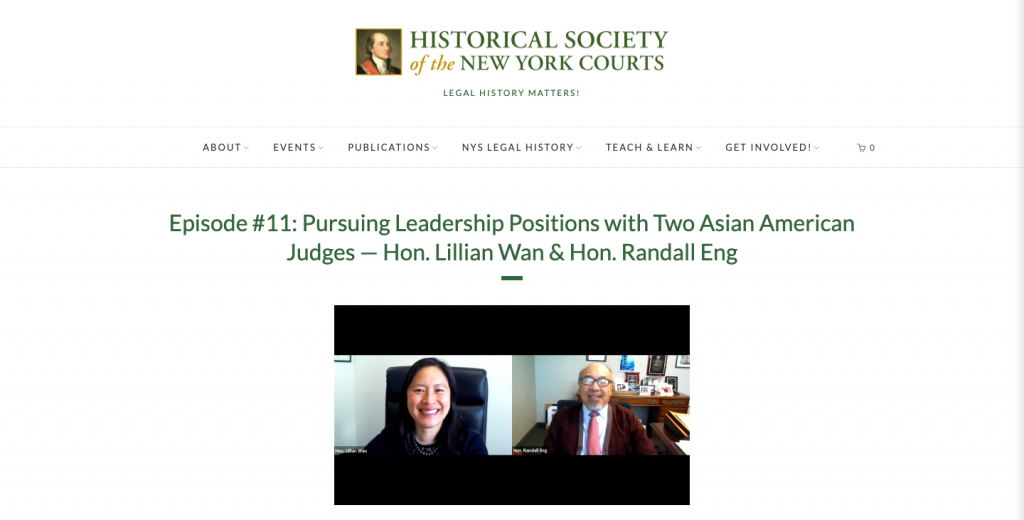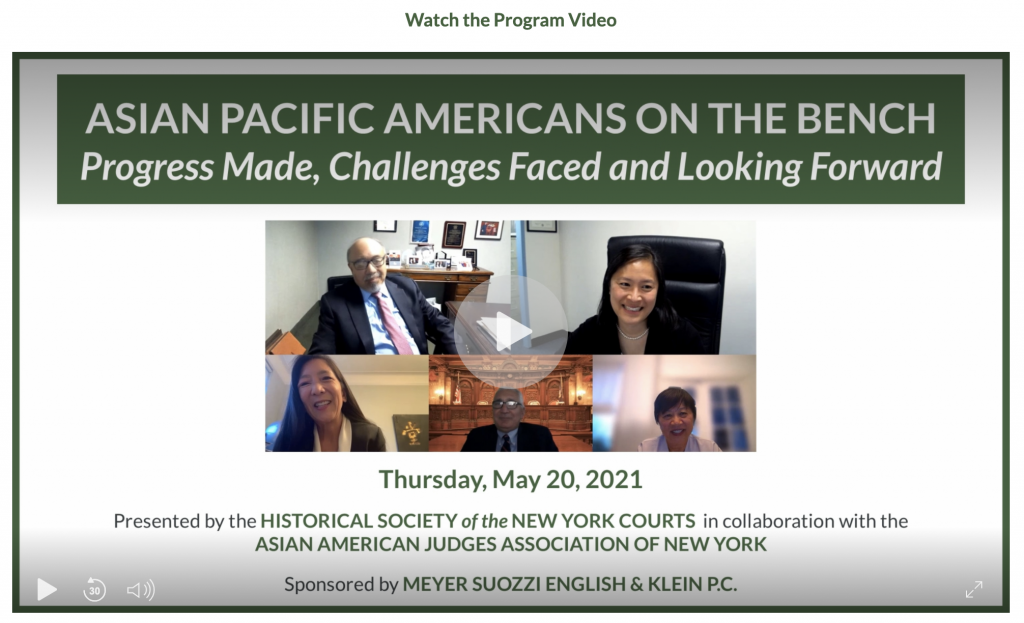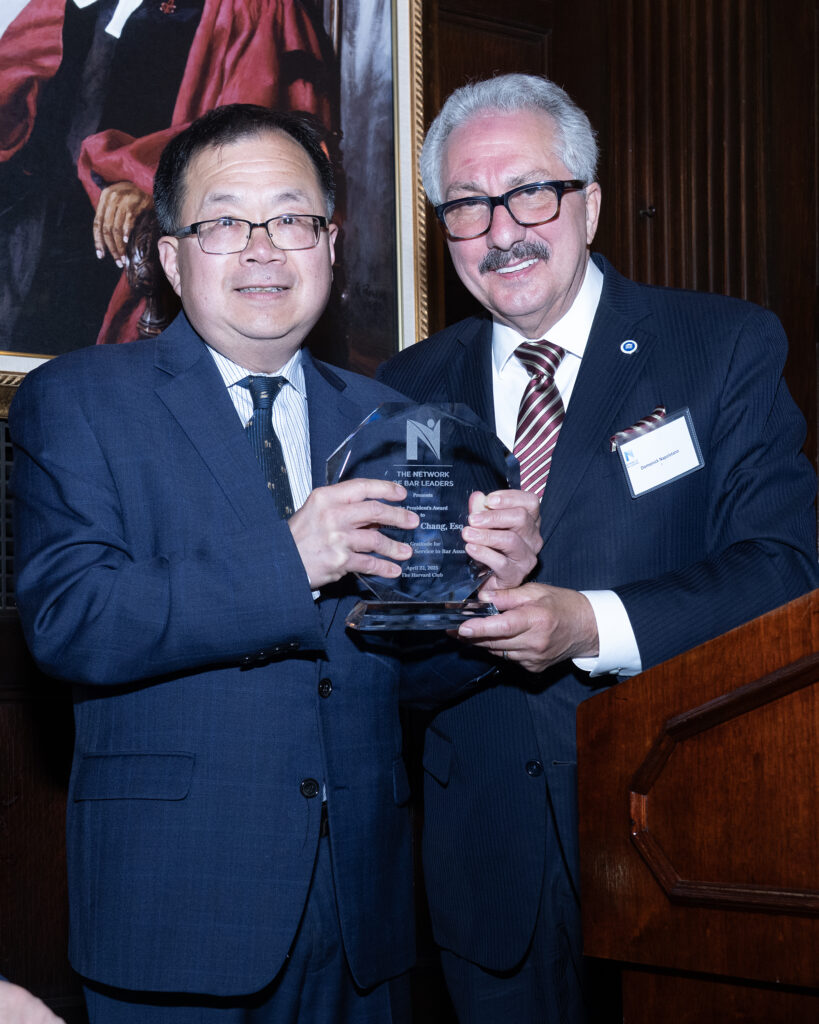
On April 22, 2025, at The Harvard Club in New York City, the Network of Bar Leaders, a coalition representing over 50 bar associations in the greater New York Metropolitan area, honored Vincent Chang, Esq., Counsel at Davis Polk & Wardwell LLP, with the President’s Award. The distinction is reserved for those who have advanced the legal profession through the values of leadership, collaboration, and community within and across bar associations.
With a legal career focused on complex commercial litigation, including securities, investment banking, hedge funds, bankruptcy, insurance, real estate, antitrust, and bondholder disputes, Vince brings a deep sense of responsibility to the profession. His resume includes serving as Immediate Past President of the New York County Lawyers Association (NYCLA), past President of the Asian American Bar Association of New York (AABANY), and a member of the Executive Council of the Network of Bar Leaders. He currently holds positions within the American Bar Association and the New York State Bar Association, including serving as a Special Advisor to the ABA’s Standing Committee on the Federal Judiciary. Vince is one of those rare leaders who has left a lasting mark on the legal community not only through his work in the courtroom but also through the time, energy, and care he has poured into the bar associations that shape the future of law.
Vince’s journey in bar association leadership began with AABANY, a formative role that contributed to his collaborative approach to leadership. “My goal was to bring people together,” he recalled. His efforts not only unified the group but also doubled AABANY’s membership during his term. His ability to lead with transparency and unity laid the groundwork for a generation of new leaders, including James Chou and Yang Chen, both past presidents of AABANY. Yang now serves as its Executive Director. Vince credits AABANY as the launchpad for much of his bar association work. “It was the leadership opportunity that started everything. Without AABANY, I wouldn’t have joined other bar associations, wouldn’t have become part of the American Bar Association, wouldn’t have been president of the Network.” His leadership at AABANY set a standard that continues to influence the future of the legal community.
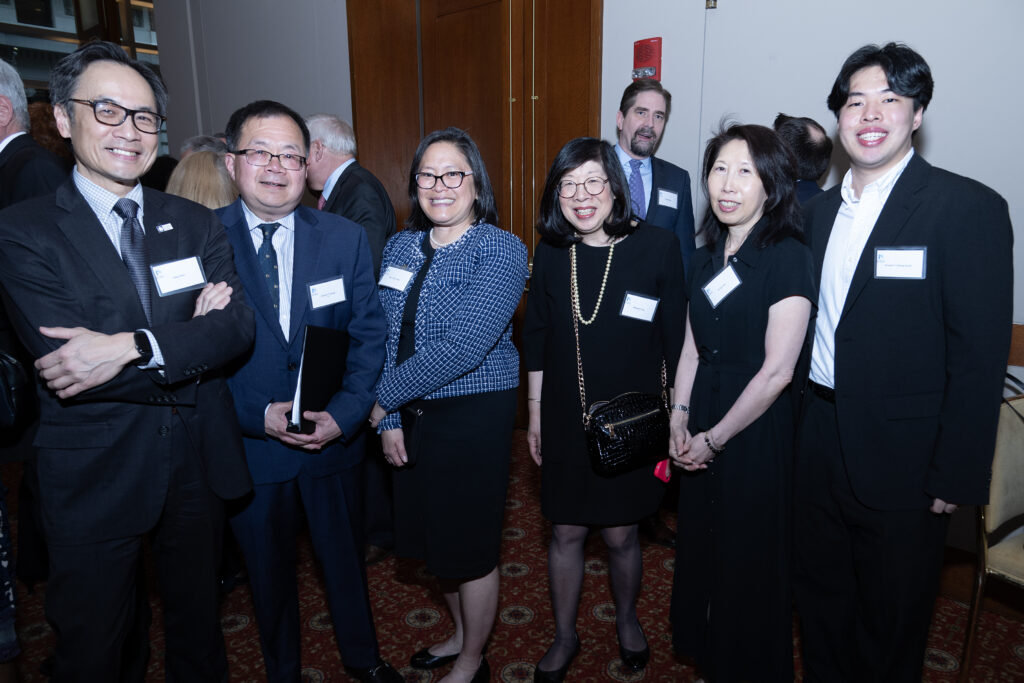
From there, his bar service expanded across the legal landscape. At NYCLA, he guided the association through the difficulties of COVID-19, restructured its physical offices to ensure financial stability, and upheld its legacy as a pioneer in legal diversity. “It was the first bar association to admit people of color, women, and non-Protestants,” he shared. “Serving as President was a high point in my career.” His leadership not only preserved NYCLA’s legacy but positioned it to thrive in a new era of law and inclusion.
What motivates someone to give so much time and energy to bar associations while maintaining a demanding legal career? For Vince, the answer is simple: the people. “There’s a lot of fellowship in bar associations,” he explained. “You learn from great people. You get to do fulfilling work. And you really don’t need a huge time commitment to get started. If you put more into it, you get more out of it. But even a small investment of time can open doors—meet judges, build networks, find mentors.” His message to younger attorneys is clear: “Carve out the time, no matter how difficult it seems. Bar associations are a fulfilling activity, and one that young lawyers ought to get involved in immediately if they can.” By prioritizing bar association involvement, young attorneys can unlock opportunities that extend from just their legal practice.
Across every organization he’s served, Vince has consistently advocated for the judiciary, particularly in securing fair pay and resources. “There was a time when judges went more than a dozen years without a raise. That’s unacceptable.” Through reports, testimonies, and public education, Chang helped lead the fight for change. “Supporting the judiciary is some of the most rewarding work I’ve done,” he said. His dedication to judicial advocacy has helped redefine how legal professionals understand the vital role of court support.
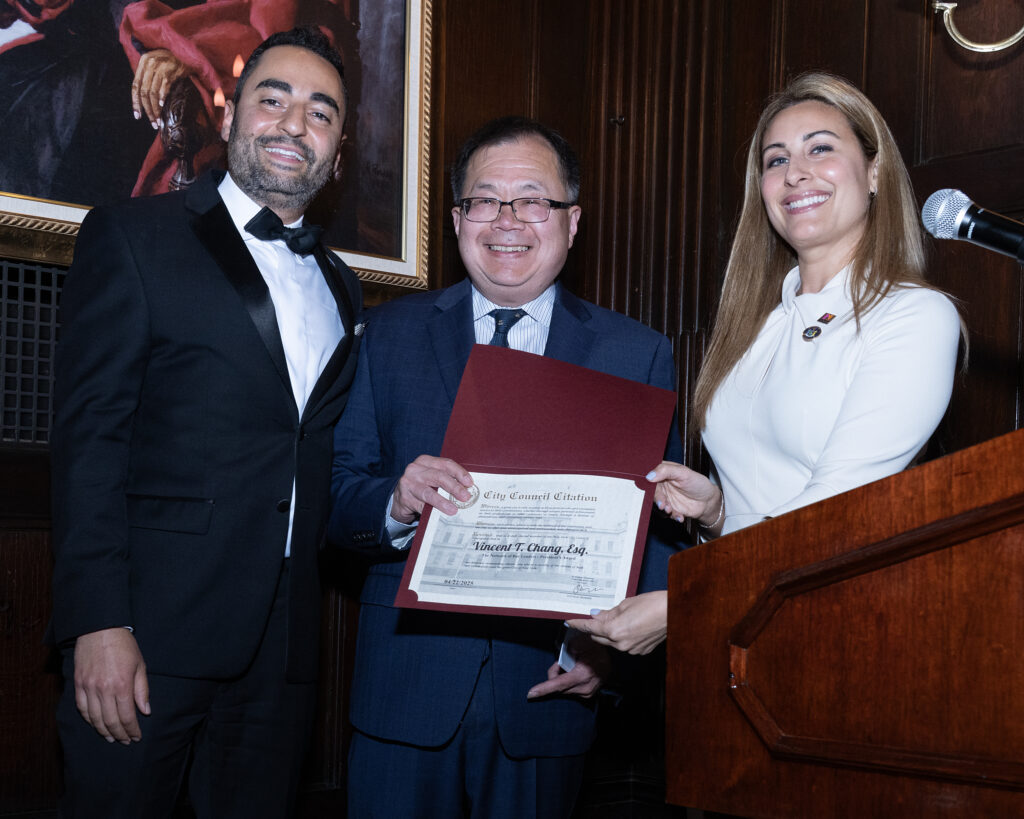
Beyond his work in bar associations, Vince’s legal career includes moments that many attorneys only dream of. One of the most memorable was a case that took him all the way to the United States Supreme Court. “It was a landmark case for Morgan Stanley, involving separation of powers. I’ll never forget seeing the justices in person,” he shared. The case was decided 4–4, which meant the previous court’s decision stayed in place. While Vince’s team did not win at the time, their argument was proven right when a later case confirmed the same legal principle. It was an experience that left a lasting impression both professionally and personally.
For the next generation of lawyers, Vince advises: “Putting your head down and working at your desk 12 hours a day won’t be enough. You have to meet people. You have to network. You have to learn from the broader profession.” He’s honest about what he would’ve done differently. “I didn’t really get involved in bar associations until I was 40. If you start in your 20s, you’ll get so much more out of it.” His advice serves as a reminder that success is built on connections, experience, and a willingness to step out of one’s comfort zone.
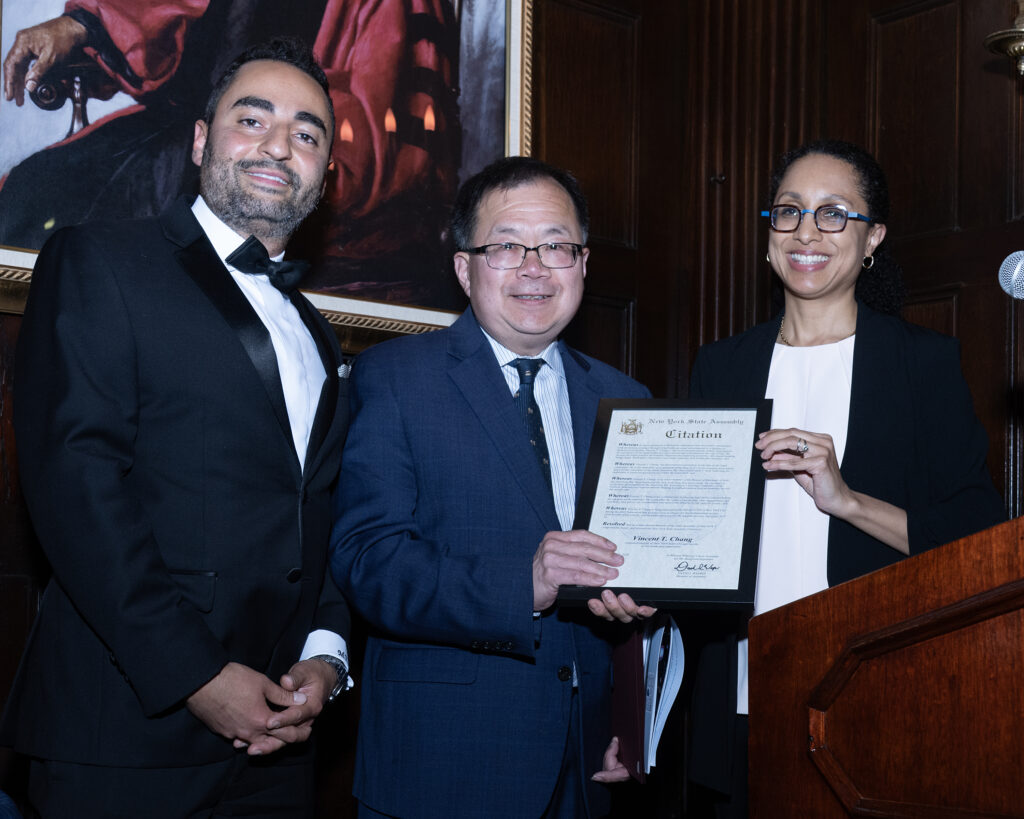
However, Vince also sees real challenges ahead. As social media and changing lifestyles pull younger professionals away from traditional membership organizations, bar associations must adapt. “Many groups are struggling with membership. AABANY has done well because it has a young demographic to draw from and knows how to reach them. But we can’t take that for granted.” He points to studies like The Portrait Project to show how diversity efforts must continue beyond entry-level roles. “There’s a glass ceiling. Asian American attorneys are getting into the profession, but they’re not advancing at the highest levels—whether that’s partner, elected DA, or leadership in government. We need to figure out why.” The future of bar associations depends on their ability to evolve and break down barriers for underrepresented groups within the profession.
Vince’s contributions to the legal community go beyond his accolades and titles. They are a reflection to a life dedicated to service, leadership, and progress. Through his commitment to bar associations and mentorship of young attorneys, he has made a strong impact for generations to come. Vince’s legacy is not just in the offices he’s held or the cases he’s won, but in the lives he’s touched and the doors he’s opened for others. His leadership continues to shape the future of our legal system: one that is more inclusive, more equitable, and more united than ever before.
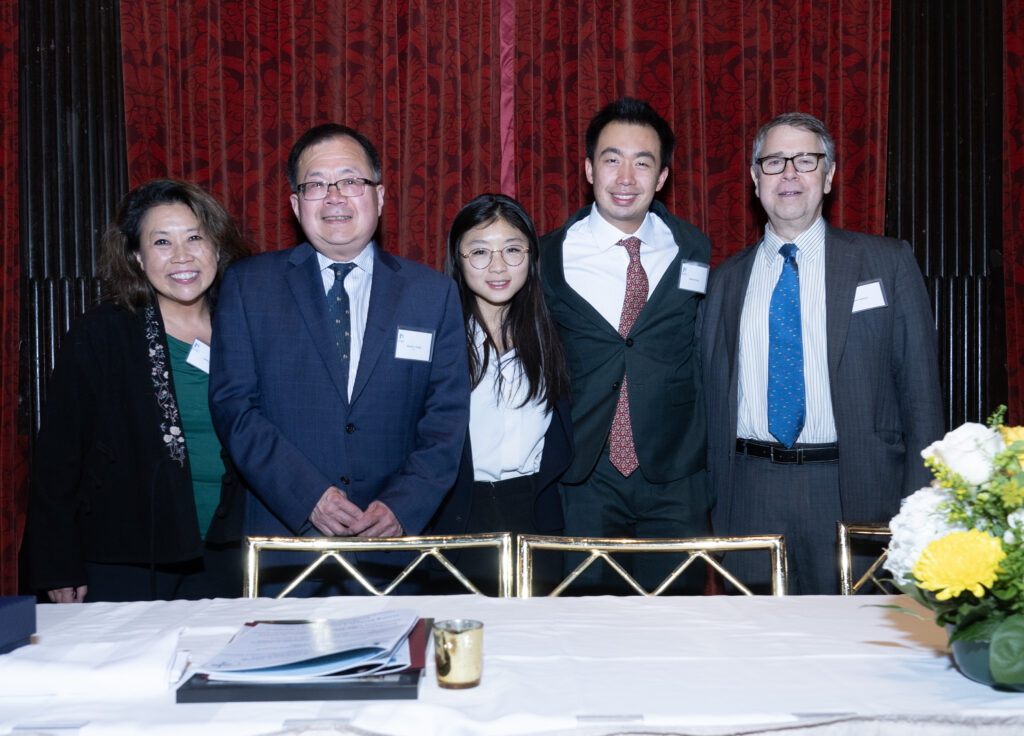
Vince reflected on the celebration with heartfelt gratitude: “I am deeply grateful to my friends from the Asian American Bar Association of New York for sponsoring and attending this event. Including myself, there were five AABANY Presidents present. AABANY has always been close to my heart, and I am thrilled to see its continued growth and success under the leadership of Yang Chen and Ben Hsing.”
Congratulations, Vince Chang, 2025 Recipient of The Network of Bar Leaders’ President’s Award!



